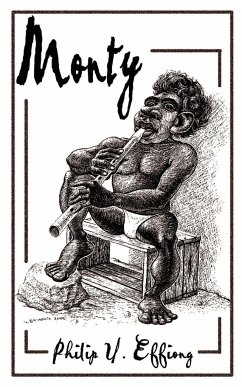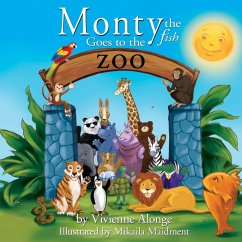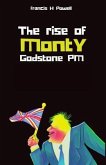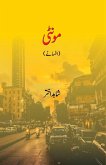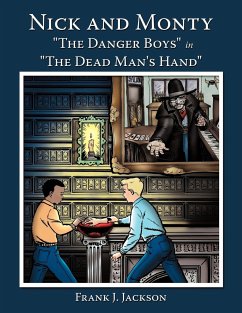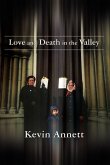" When Monty is born to a dying mother and faceless father in a dilapidated, wartime refugee camp, his future is uncertain, even after he is rescued by Sister Eileen Doherty, a Catholic nun. The rest of the story chronicles Monty's post-war, mental and social journey, finally highlighting an aspect of war that is often ignored-its aftermath and consequences. Initially set in a nameless nation whose attempt at secession has resulted in a devastating civil war, the initial scene is an appalling refugee camp where survival tests the utmost in human endurance and misery. After Monty's rescue from the camp soon after his birth, Sister Doherty, his rescuer, is shot but doesn't die until she manages to deliver the infant to a secret airstrip. Here, he is miraculously kept alive by Father Brendan who gives him the name, Monty, and thus begins the child's phenomenal journey, which covers two continents. He is first taken to Ireland, but the United States is soon considered to be more suited to his psychological and emotional needs. At nine he is sent there to live either with surrogate families or in special educational facilities. The two families that host Monty at different times in the United States-the Joneses and the Kennedys-each have a different impact on his vision of life, his impressions of himself, relationships and his survival instincts. But Monty largely stays to himself, carving out imaginary worlds that are supposed to fill the many gaps in his life. For a greater part of his life, Monty is marked as a refugee and ward of the Catholic Church. Lacking the basic knowledge of who he really is and having to endure the mental and physical defects that result from his gory birth, his struggles are partly alleviated by his uncanny flute-playing skill, which is discovered before he is a teenager. For the rest of his life the flute becomes his most trusted companion, a source of self-worth, a source of inspiration and a pathway to recognition and hope. After completing the educational training that is considered appropriate for him, Monty is settled in a Co-op in Madison, Wisconsin, where he lives with other wards of the Church. This is the closest he has come to being independent and earns a stipend for playing his flute during church services at a cathedral. But he is still largely detached and suffers long bouts of aloneness. Totally frustrated and obsessed with discovering who he really is, he rebels against the Church and this results in his being sent back to the land of his birth where the civil war that created him has long ended. At this time, Monty is a young man. Back in the land of his birth, arrangements are made for Monty to meet with Father Brendan, the same priest that had saved his life 30 years earlier and given him his name. The meeting place is the former airstrip, now a war museum.Monty's meeting with Father Brendan sets the stage for his final rediscovery and offers him the opportunity for renewed life, even if it will always be tied to the Catholic Church. Monty is Influenced by my recollection of the refugee camp situation during Nigeria's civil war."
Hinweis: Dieser Artikel kann nur an eine deutsche Lieferadresse ausgeliefert werden.
Hinweis: Dieser Artikel kann nur an eine deutsche Lieferadresse ausgeliefert werden.

